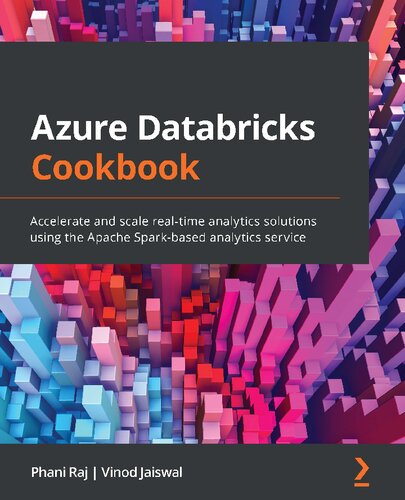

Most ebook files are in PDF format, so you can easily read them using various software such as Foxit Reader or directly on the Google Chrome browser.
Some ebook files are released by publishers in other formats such as .awz, .mobi, .epub, .fb2, etc. You may need to install specific software to read these formats on mobile/PC, such as Calibre.
Please read the tutorial at this link: https://ebookbell.com/faq
We offer FREE conversion to the popular formats you request; however, this may take some time. Therefore, right after payment, please email us, and we will try to provide the service as quickly as possible.
For some exceptional file formats or broken links (if any), please refrain from opening any disputes. Instead, email us first, and we will try to assist within a maximum of 6 hours.
EbookBell Team

4.0
76 reviewsGet to grips with building and productionizing end-to-end big data solutions in Azure and learn best practices for working with large datasets
Key FeaturesAzure Databricks is a unified collaborative platform for performing scalable analytics in an interactive environment. The Azure Databricks Cookbook provides recipes to get hands-on with the analytics process, including ingesting data from various batch and streaming sources and building a modern data warehouse.
The book starts by teaching you how to create an Azure Databricks instance within the Azure portal, Azure CLI, and ARM templates. You'll work through clusters in Databricks and explore recipes for ingesting data from sources, including files, databases, and streaming sources such as Apache Kafka and EventHub. The book will help you explore all the features supported by Azure Databricks for building powerful end-to-end data pipelines. You'll also find out how to build a modern data warehouse by using Delta tables and Azure Synapse Analytics. Later, you'll learn how to write ad hoc queries and extract meaningful insights from the data lake by creating visualizations and dashboards with Databricks SQL. Finally, you'll deploy and productionize a data pipeline as well as deploy notebooks and Azure Databricks service using continuous integration and continuous delivery (CI/CD).
By the end of this Azure book, you'll be able to use Azure Databricks to streamline different processes involved in building data-driven apps.
What you will learnThis recipe-based book is for data scientists, data engineers, big data professionals, and machine learning engineers who want to perform data analytics on their applications. Prior experience of working with Apache Spark and Azure is necessary to get the most out of this book.
Table of Contents